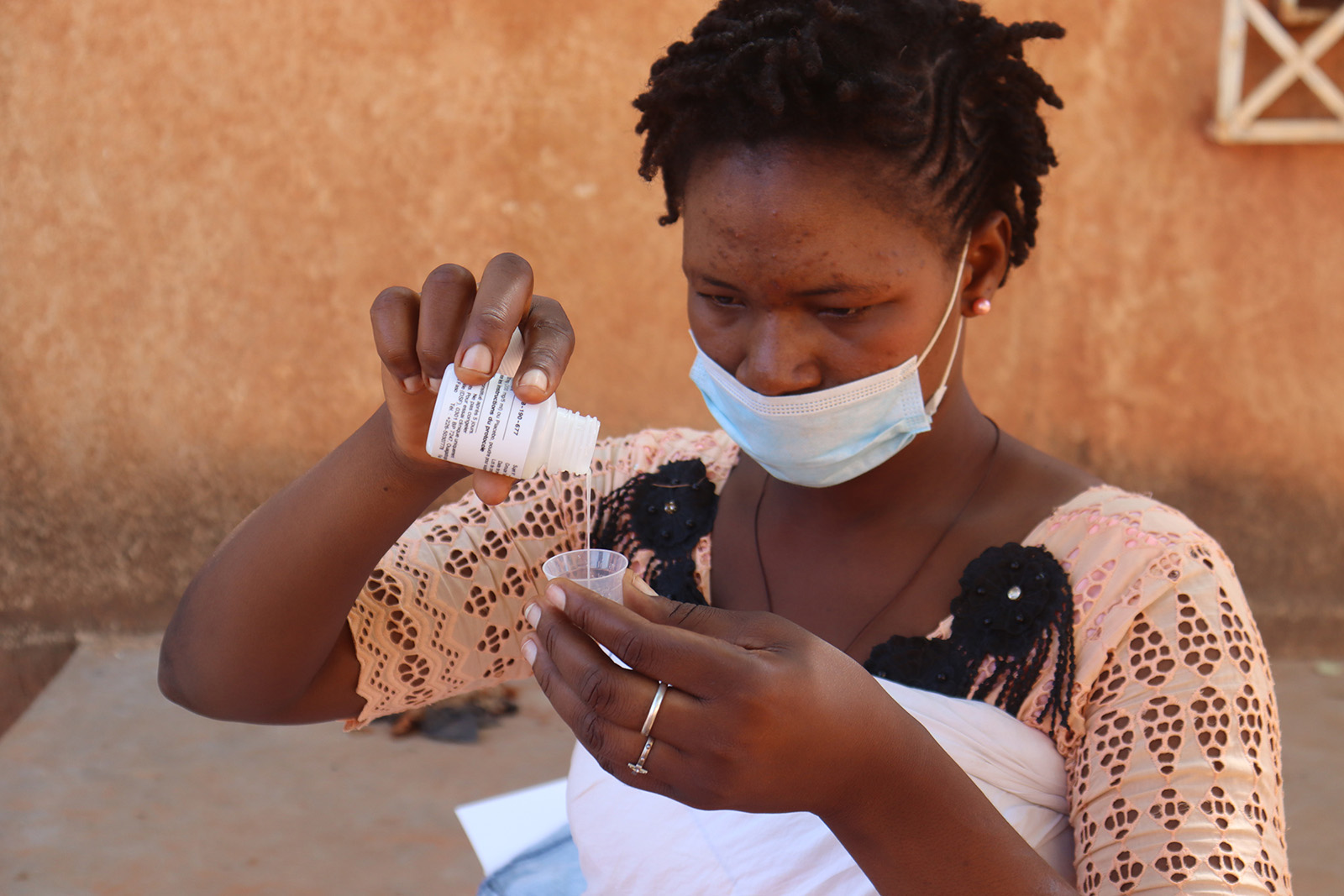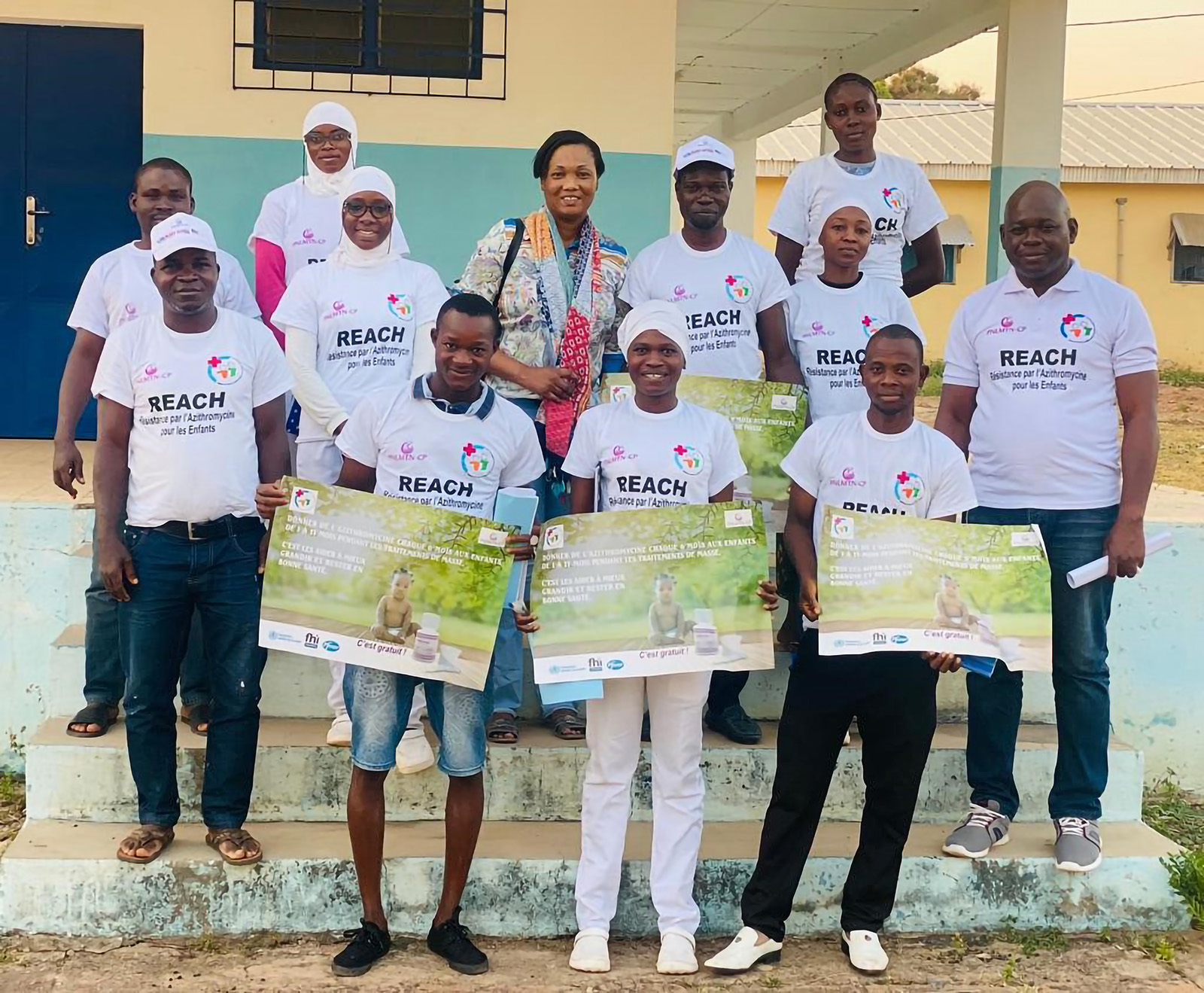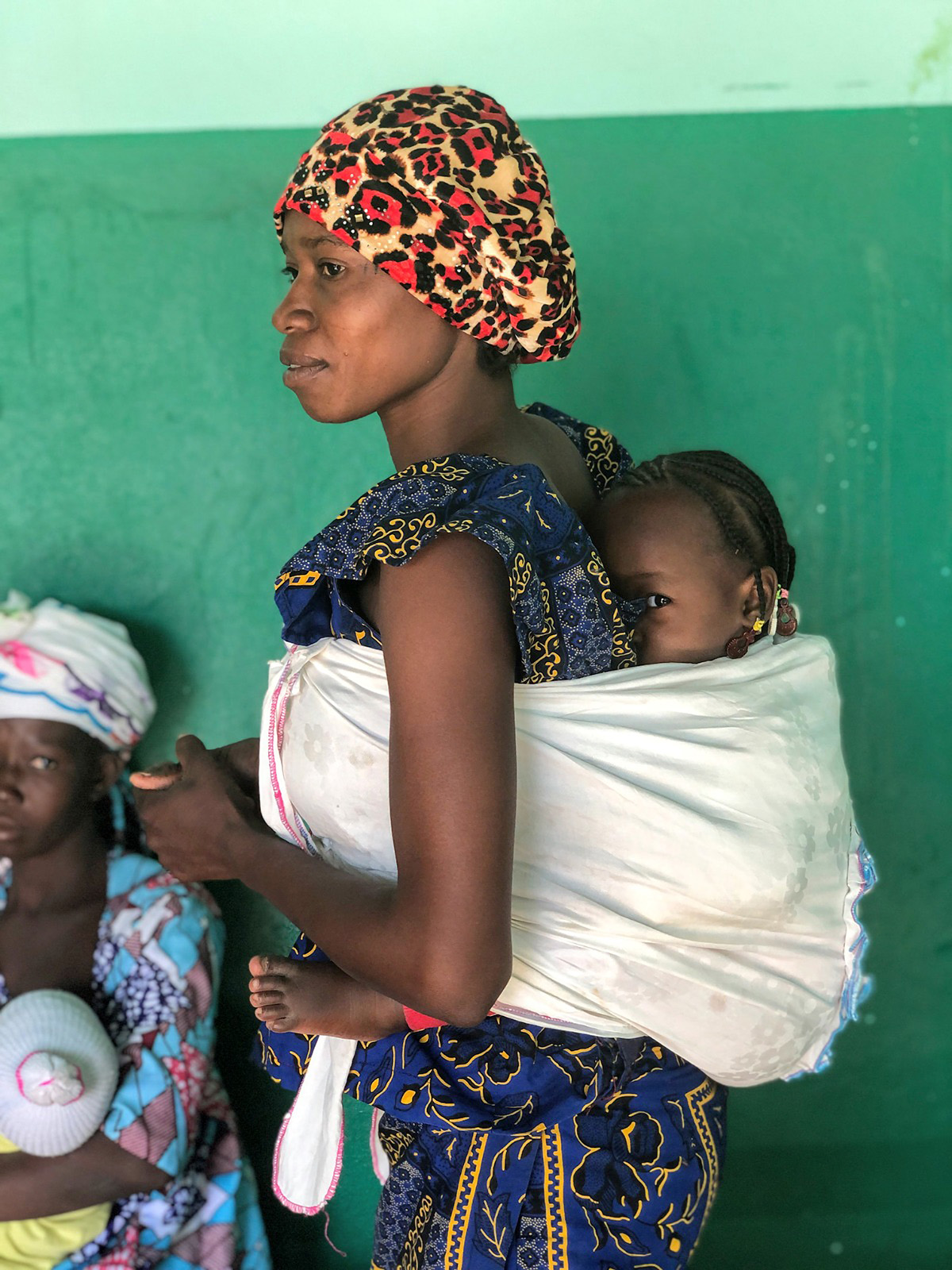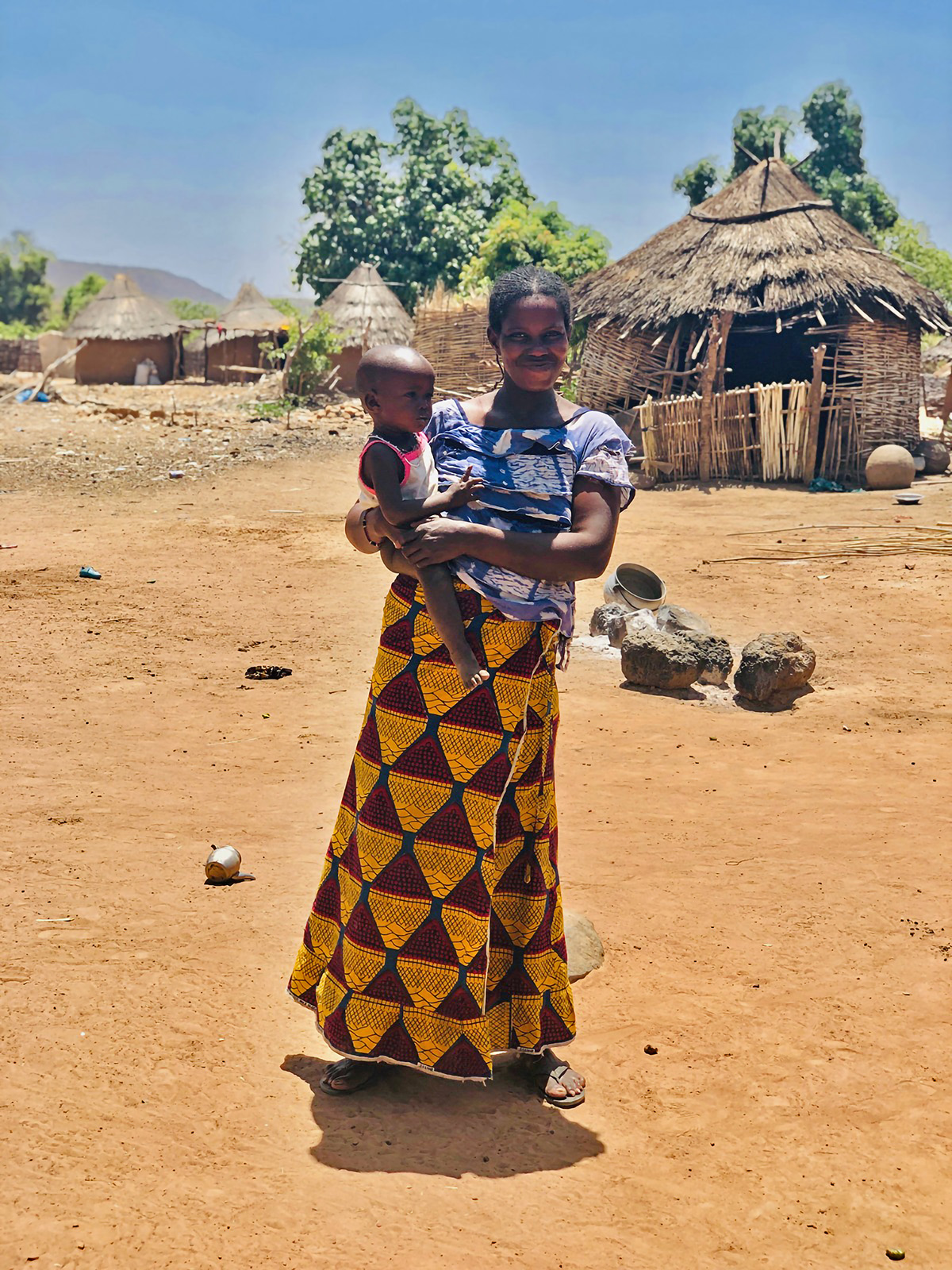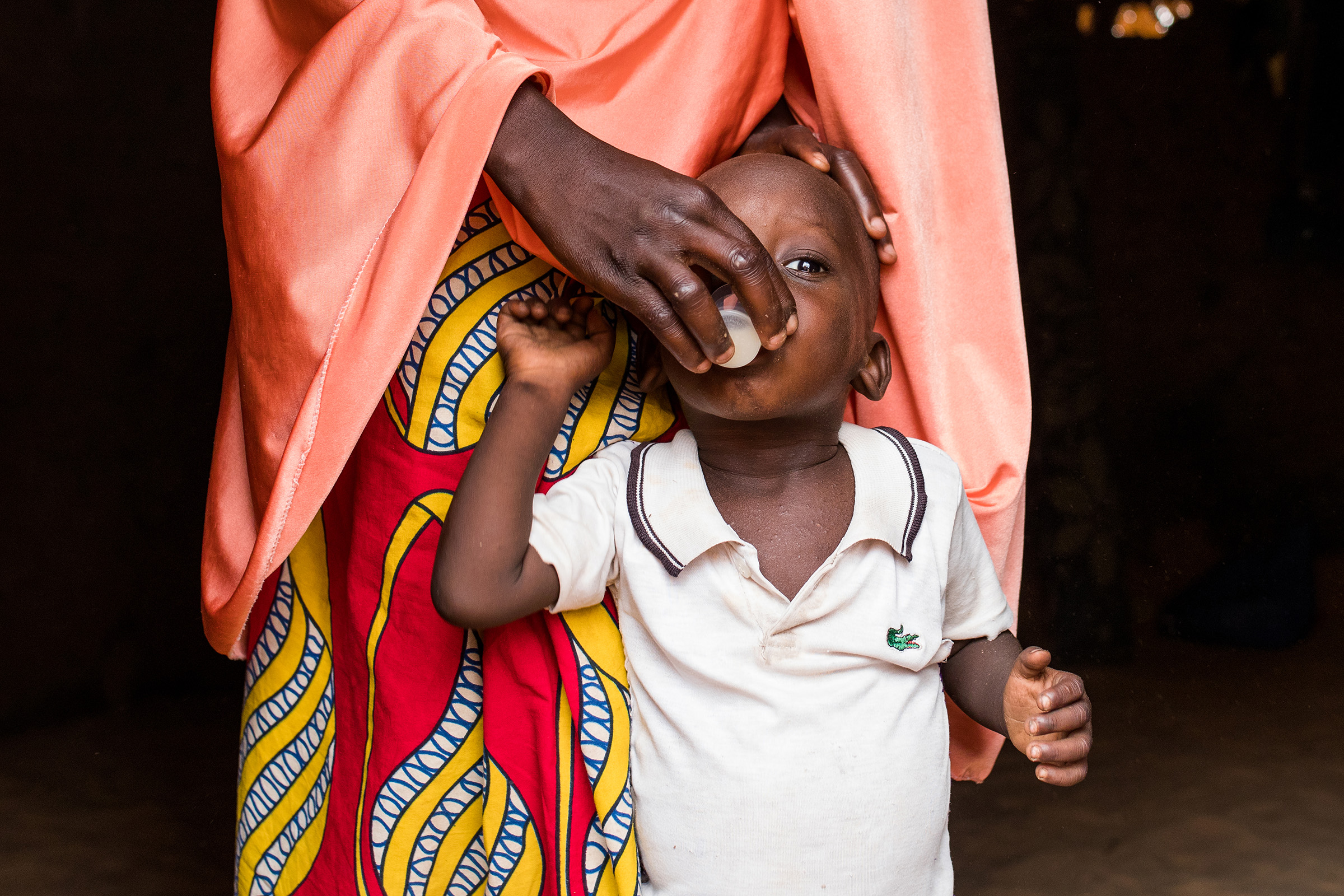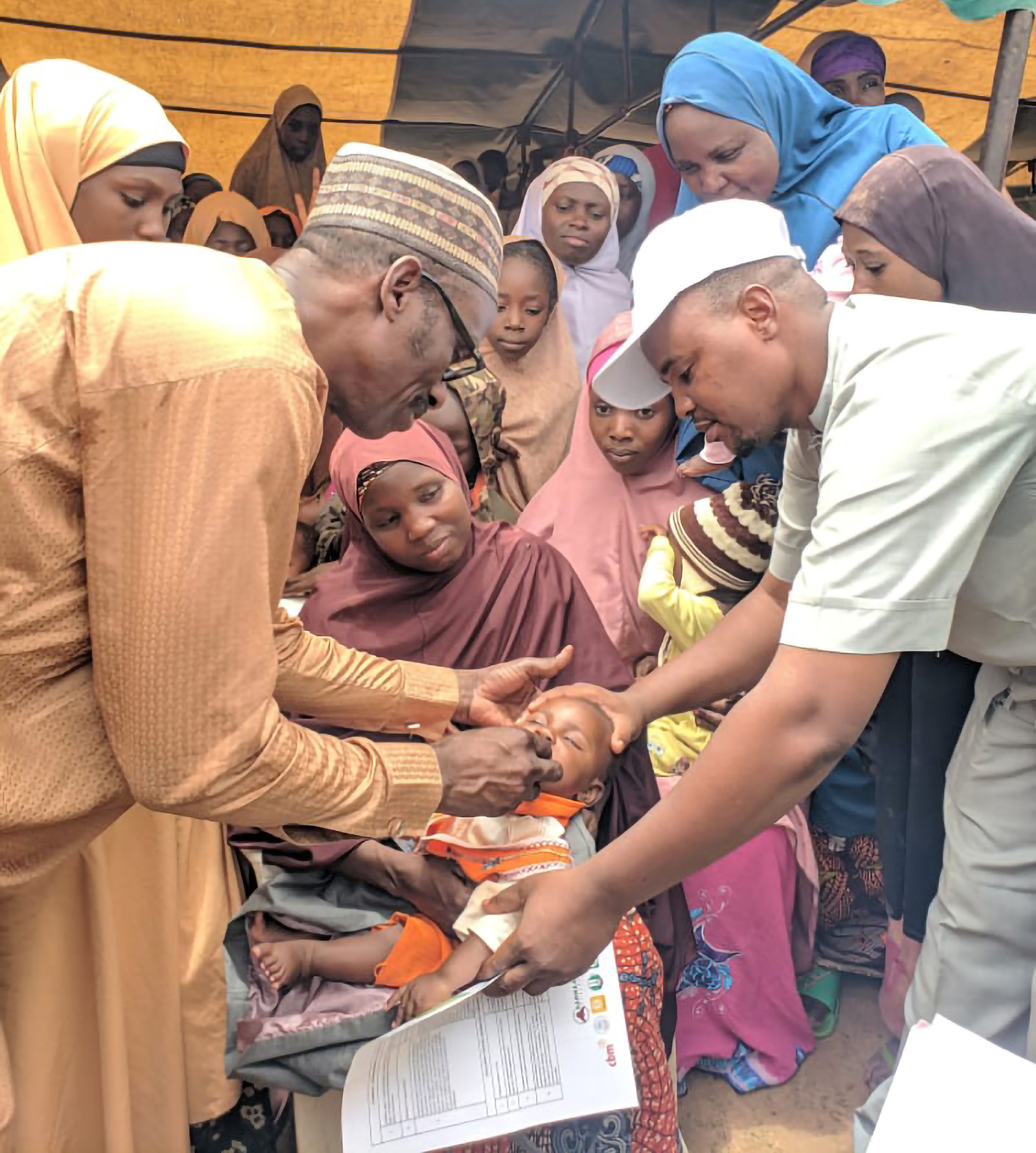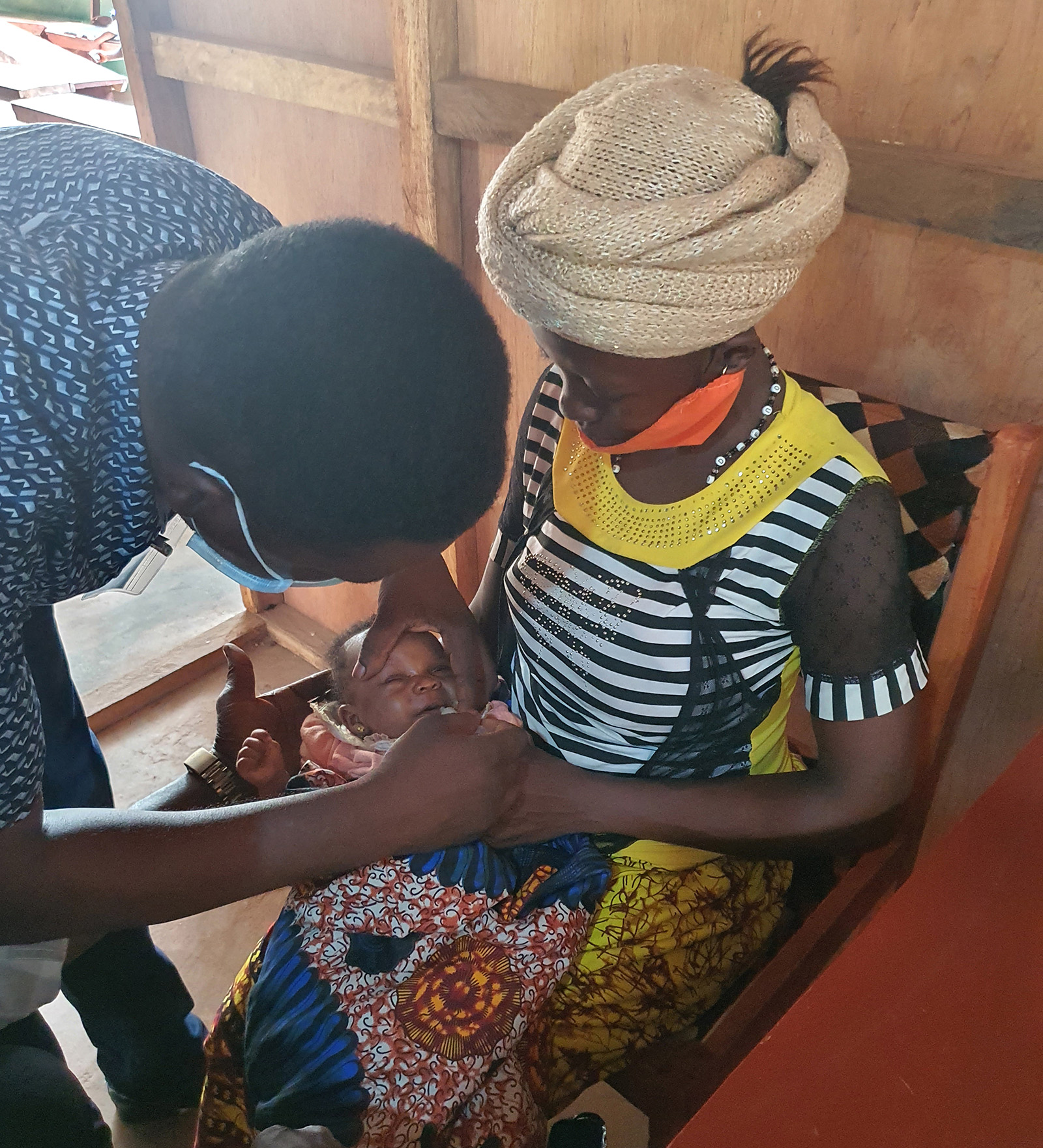SANTÉ, Mali
The SANTÉ trial consists of a maternal-child programmatic delivery of azithromycin.
SANTÉ stands for “Sauver avec l’Azithromycine en Traitant les Femmes Enceintes et les Enfants” – “Saving [lives] with azithromycin by treating pregnant women and infants”.
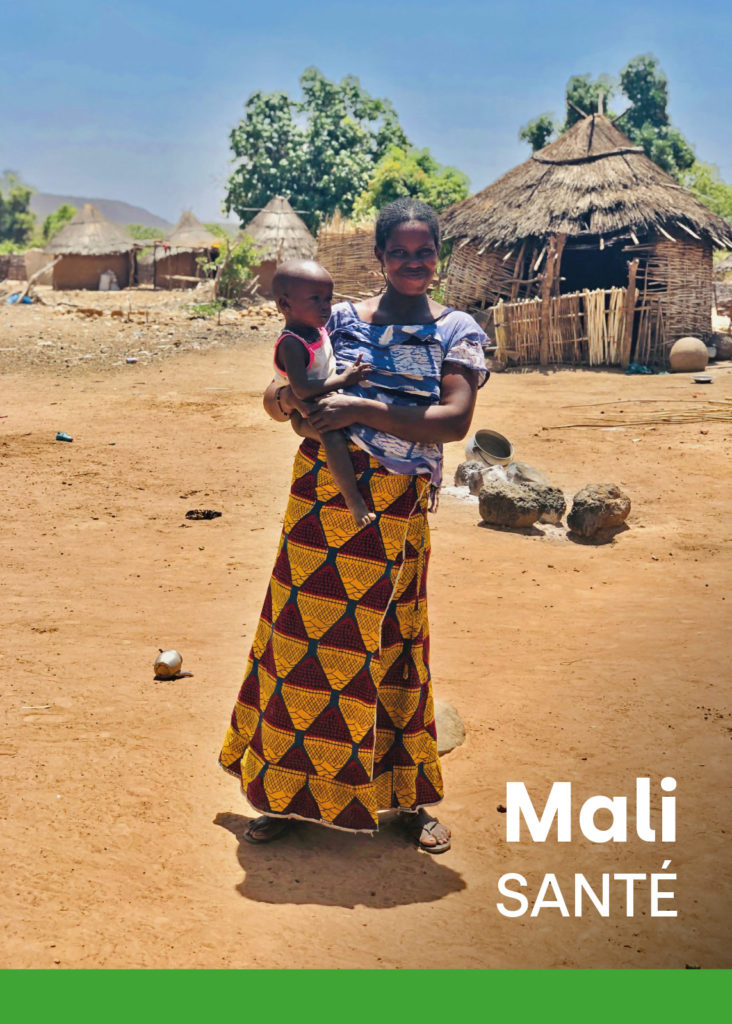
Overview
The SANTÉ trial primary efficacy and safety results readout is expected in January 2025, based on the following primary objectives:
- Primary Objective 1A: To assess the efficacy of maternal azithromycin delivered twice antenatally (2nd/3rd trimesters) and intra/peripartum [three total doses] to reduce a composite outcome of stillbirths and infant mortality through at least six months of age.
- Primary Objective 1B: To assess the efficacy of infant azithromycin delivered at the first and third doses of routine pentavalent vaccine (~6 and 14 weeks of age) to reduce infant mortality from the time of the first dose through at least six months of age.
The trial has enrolled more than 50,000 pregnant women in three districts in the south of Mali, and an additional 12,000 infants (EPI), and conducted AMR and other sub-study monitoring in 21 aires de santé (health areas).
Follow-up of primary outcome data was completed in April 2024
Analyses of primary efficacy and safety data are underway with readout expected in January 2025
AMR testing is in progress, the aim being for initial results to closely follow the primary efficacy readout
The study will follow up sub-study participants through February 2025
The study is conducting implementation research to document the intervention and estimate trial coverage.
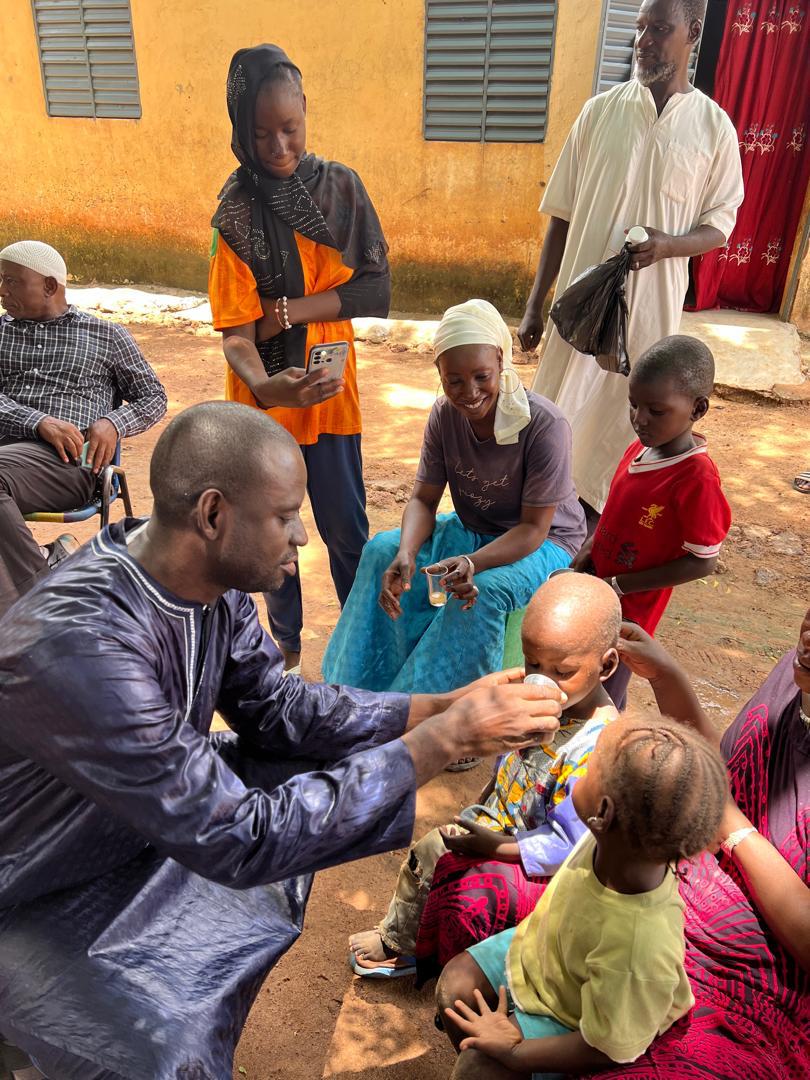
Scale-up
Mali is currently in the process of scaling up azithromycin MDA implementation across the country, putting in place a national rollout to target children aged 1–59 months throughout the country (excluding the capital district of Bamako).
This implementation will be integrated with the nutrition platform, but its adaptive design will enable it to be integrated with other platforms as well. A robust monitoring and evaluation (M&E) framework will be put in place based on the lessons of other REACH countries. The M&E plan, in conjunction with national provision, will include sentinel sites, monitoring of births and deaths during MDA provision, and endline surveys. It will require providers to conduct a six-month birth and death history with each round of MDA.
Also being planned is a cross-sectional study, consisting of a small delayed-treatment population as comparators, using full pregnancy history, pre- and post-implementation. AMR monitoring will cover asymptomatic cases (rectal and nasal samples, S. pneumoniae and E. Coli) and there are plans also to isolate pathogens in order to assess pathogen-specific AMR.

